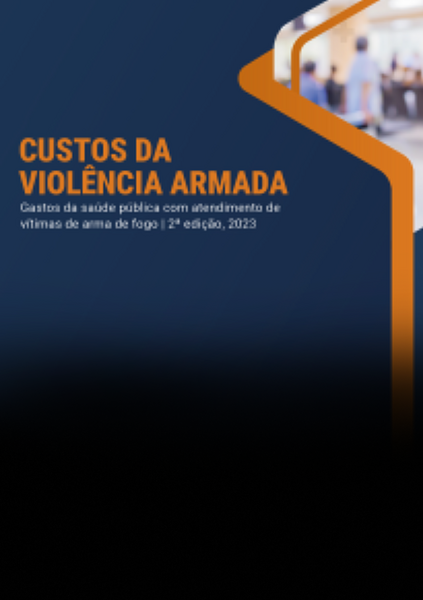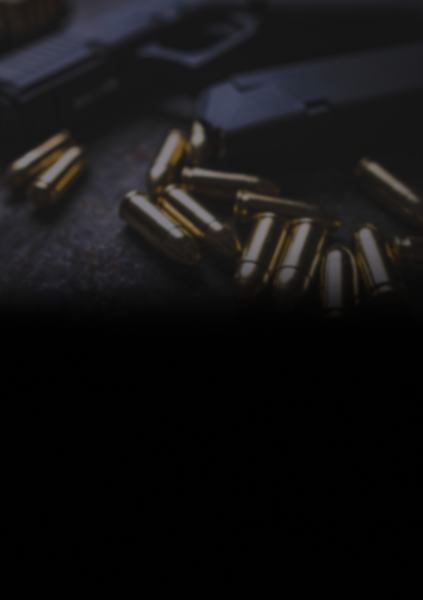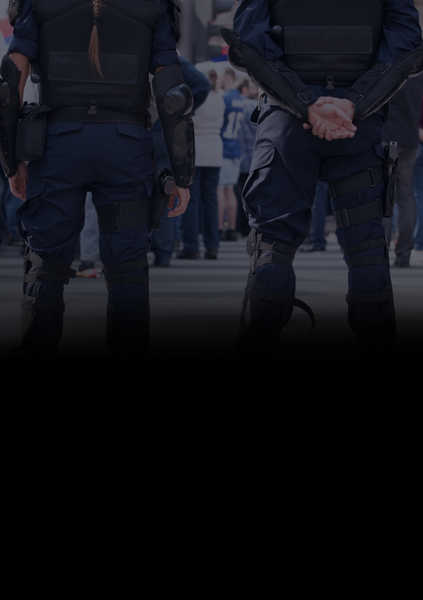OPINION: Brazil’s president may well lose Sunday’s election, but he has ensured he has plenty of armed supporters
Artigo escrito pela diretora-executiva do Instituto Sou da Paz, Carolina Ricardo, publicado no open Democracy (clique para acessar o texto original)
Afew weeks ago, The Economist released an issue with Brazil’s President Jair Bolsonaro on the cover. Comparing him to Donald Trump, the magazine said that the Brazilian is preparing to tell his own “big lie” about the validity of elections if he loses. Win or lose, The Economist argued, Bolsonaro represents a “threat to democracy in Brazil”.
Over the months, Bolsonaro has repeatedly said that he can disrespect the decisions of the Brazilian Supreme Court. He harasses journalists daily and encourages his followers to take to the streets to scream for the closing of the Supreme Court and Congress. In July, he gathered foreign ambassadors in the capital, Brasília, repeating unsubstantiated untruths about the electronic voting system that Brazil has used since 1996 and often cited by the international community as a model.
Brazilian society has countered with public letters in defence of democracy. One was signed by hundreds of civil society organisations, including representatives from industry, unions and academics; another has the support of almost 1 million people at the time of writing.
But there is a real possibility that more literal violence may burst out to accompany the war of words.
The federal government has published more than 40 rules that make it easier to get hold of weapons
Guns in civilian hands
Since Bolsonaro’s election in December 2018 the number of weapons registered by civilians – those legally defined as “collectors, shooters and hunters” – has more than tripled, reaching 1,300,000 this month. The federal government has encouraged this increase by publishing more than 40 rules that make it easier to get hold of weapons. The data was obtained through the Access to Information Act by Instituto Sou da Paz, a Brazilian anti-violence non-governmental organisation of which I am executive director.
Bolsonaro has legitimised the political use of these weapons. At a notorious ministerial meeting in April 2020, he said: “I want to open up the issue of gun ownership,” with the argument that “if a shitty mayor makes a decree forcing citizens to stay at home” – in other words, ordering a lockdown to slow the spread of coronavirus – “they must be able to defend themselves”.
There is mounting evidence that many of these weapons are ending up in the hands of criminals. Historically when police in Brazil have seized a gun from a criminal, they have found that the criminal held the weapon legally. But the new spike in the volume of guns now circulating has been a huge boon to the underworld.
In Brazil the military are partly responsible for overseeing private gun ownership. But they have failed to invest in new capacity to meet the soaring demand for weapons, making it easy for criminals to get their hands on them. After it was revealed that a man wanted on murder and drug trafficking charges had bought an automatic rifle, the army released a terse note saying he was legally entitled to do so based on the paperwork he had provided – but that his permit would be revoked.
Related story
In my view, it is a political project of the Bolsonaro government to facilitate the arming of the population. I believe this is why military has not invested in the capacity needed to accomplish its oversight task – because of political interference by Bolsonaro.
In addition, pro-gun activism has spread a gun culture that flirts with authoritarian and anti-democratic outbursts. Groups that largely defend the individual’s right to self-defence also flirt with anti-democratic positions. For example, at a meeting in June that pro-gun groups promoted, inflammatory speeches complained about the Supreme Federal Court for making decisions that the government dislikes or, like Bolsonaro, delegitimised the electronic voting system of the elections.
So the president has a strong and armed support base. Would they take up arms to defend his interests? Is it possible that Brazil could have its own version of the US Capitol uprising to delegitimize the election results?
Political violence and intimidation
A wider concern is the violence and intimidation against politicians and crimes with political motivation.
A few days ago, a man was killed after he had defended the former president and current candidate of the Workers’ Party (PT), Luiz Inácio Lula da Silva – better known simply as Lula – in a discussion in the city of Cuiabá. A supporter of President Jair Bolsonaro has confessed to the crime, saying he committed it for political reasons. He has been arrested.
In June, a man invaded a party in the city of Foz do Iguaçu and killed the municipal police officer Marcelo Arruda. Arruda was celebrating his 50th birthday at a PT-themed party, with flags and party colours and a picture of Lula. According to a police report, when the gunman entered the party he shouted the name of Jair Bolsonaro. On social networks, he had shown support for the president.
A few days later, shortly before an event in Uberlândia attended by Lula, a drone flew over the site spraying poison on his supporters.
A risky moment
Brazil started this electoral period in a way never seen in our recent history, with polarisation, political violence, a proliferation of armed groups, delegitimisation of the electoral process and politicisation of the security forces. But, at the same time, civil society is mobilised, and the institutions have kept at least some control of the electoral process.
There are many examples: demonstrations in favour of democracy, prohibition of the carrying of firearms near voting centres and prosecutors overseeing police. And the minister of the Supreme Court, Alexandre Moraes – now also president of the Superior Electoral Court, the institution responsible for conducting the electoral process – met with state commanders of the military police to ensure the security of the elections.
But it would be unwise to assume that such measures could stop ‘Brazil’s Trump’ from trying to hold on to power by any means possible. The world needs to keep a very close eye on Brazil in the coming weeks.















